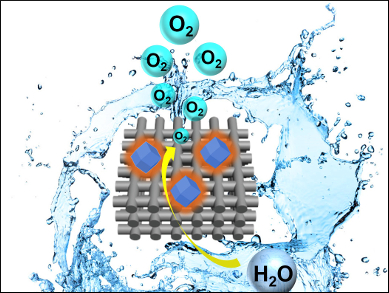The storage of wind- or solar-generated electricity is a global challenge. Water electrolysis could address this problem by converting surplus electricity into oxygen and the energy carrier hydrogen. However, the materials used in water electrolyzers are often inefficient and lack stability.
Yu-Fei Song, Beijing University of Chemical Technology, China, Carsten Streb, Ulm University, Germany, and colleagues have developed a composite electrode that combines high water oxidation efficiency with long-term stability. The researchers anchored a polyoxometalate oxygen-evolving catalyst on a commercial nickel-foam electrode. The resulting so-called NiCo-POM/Ni electrode is highly active in water oxidation and operates for prolonged periods without losing activity. The electrode functions well in the strongly basic conditions required by commercial alkaline water electrolyzers (pH 13).
The work demonstrates that tuneable, molecular metal-oxide catalysts containing non-noble metals can be anchored to commercial metal electrodes to generate readily accessible and stable composite materials for electrochemical water splitting.
- Robust Polyoxometalate/Nickel Foam Composite Electrodes for Sustained Electrochemical Oxygen Evolution at High pH,
Wenjing Luo, Jun Hu, Hongling Diao, Benjamin Schwarz, Carsten Streb, Yu-Fei Song,
Angew. Chem. Int. Ed. 2017.
DOI: 10.1002/anie.201612232

